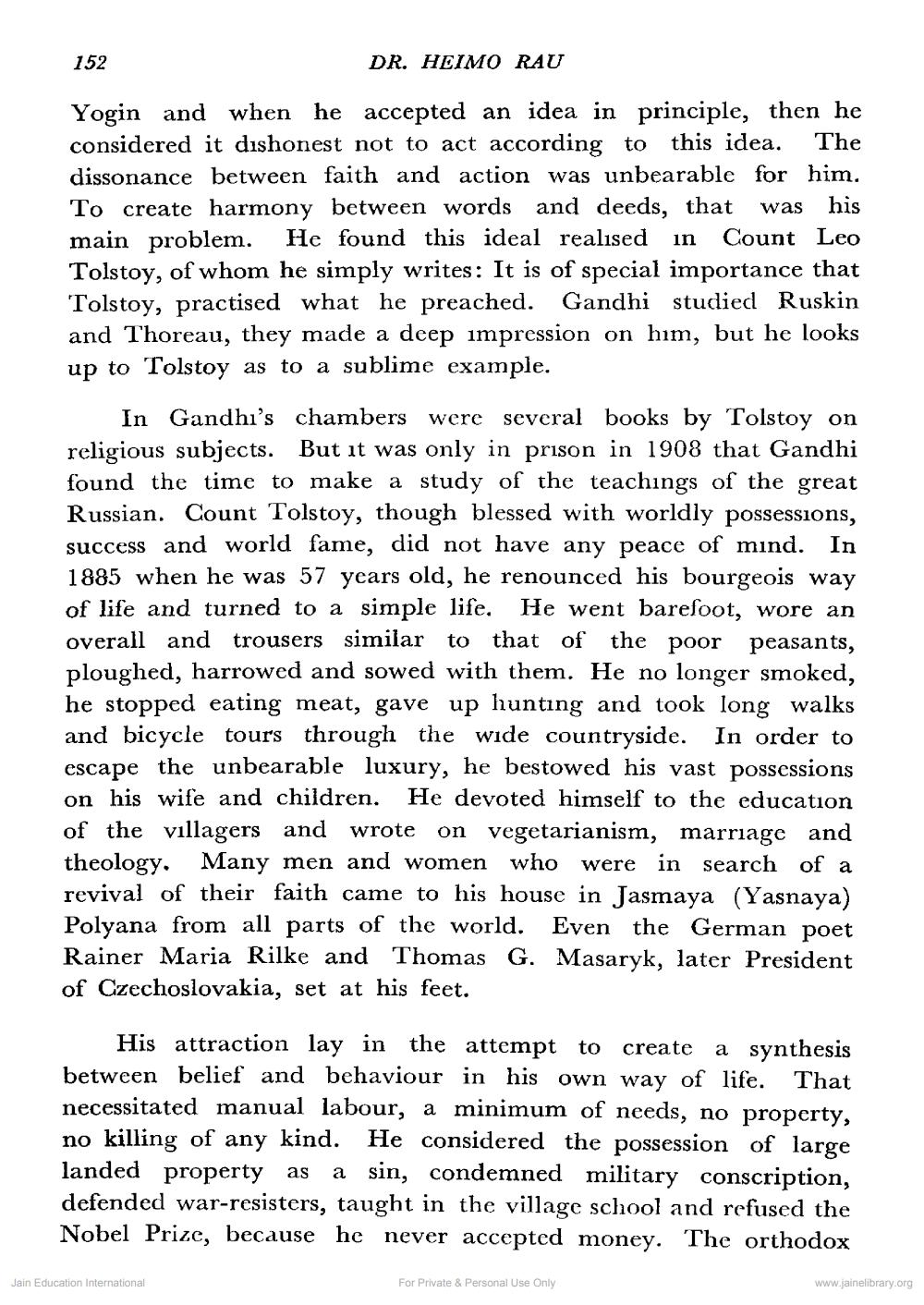________________
152
DR. HEIMO RAU
Yogin and when he accepted an idea in principle, then he considered it dishonest not to act according to this idea. The dissonance between faith and action was unbearable for him. To create harmony between words and deeds, that was his main problem. He found this ideal realised in Count Leo Tolstoy, of whom he simply writes: It is of special importance that Tolstoy, practised what he preached. Gandhi studied Ruskin and Thoreau, they made a deep impression on him, but he looks up to Tolstoy as to a sublime example.
In Gandhi's chambers were several books by Tolstoy on religious subjects. But it was only in prison in 1908 that Gandhi found the time to make a study of the teachings of the great Russian. Count Tolstoy, though blessed with worldly possessions, success and world fame, did not have any peace of mind. In 1885 when he was 57 years old, he renounced his bourgeois way of life and turned to a simple life. He went barefoot, wore an overall and trousers similar to that of the poor peasants, ploughed, harrowed and sowed with them. He no longer smoked, he stopped eating meat, gave up hunting and took long walks and bicycle tours through the wide countryside. In order to escape the unbearable luxury, he bestowed his vast possessions on his wife and children. He devoted himself to the education of the villagers and wrote on vegetarianism, marriage and theology. Many men and women who were in search of a revival of their faith came to his house in Jasmaya (Yasnaya) Polyana from all parts of the world. Even the German poet Rainer Maria Rilke and Thomas G. Masaryk, later President of Czechoslovakia, set at his feet.
His attraction lay in the attempt to create a synthesis between belief and behaviour in his own way of life. That necessitated manual labour, a minimum of needs, no property, no killing of any kind. He considered the possession of large landed property as a sin, condemned military conscription, defended war-resisters, taught in the village school and refused the Nobel Prize, because he never accepted money. The orthodox
Jain Education International
For Private & Personal Use Only
www.jainelibrary.org




